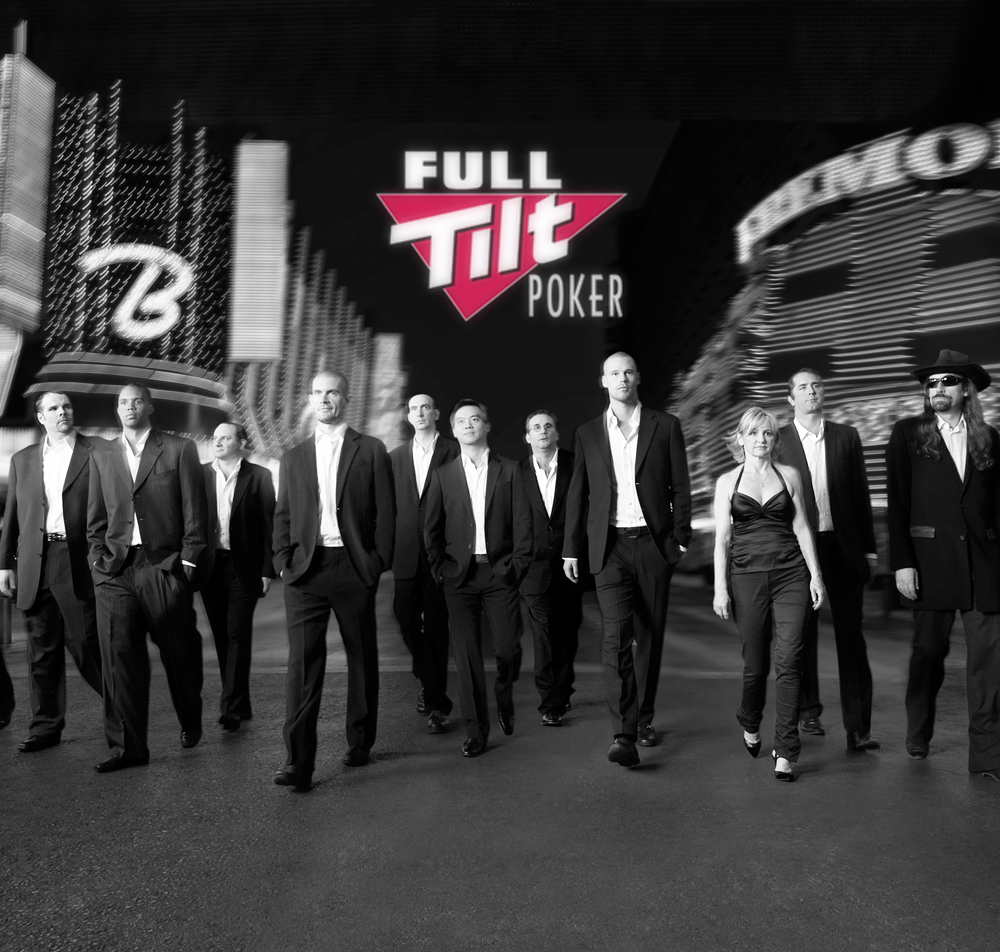Full Tilt Poker Money Laundering
Full Tilt Online Poker Download Featuring exclusive promotions and tournament types you won't find anywhere else, we are the home of authentic poker players worldwide. Joining the tens of thousands of players who play with us every day is a quick and easy process that can be completed in two short steps. Full Tilt Poker creeps back into the news. Six and a half years after Black Friday, Ray Bitar reappeared in the news this week. The title of the BBC article reporting the incident started with “Full Tilt Poker scam,” and the report went on to describe £9.5 million that was laundered by Bitar through the island of Guernsey and then returned to the United States.
- Full Tilt Poker Money Laundering No Deposit
- Full Tilt Poker Money Laundering Money
- Full Tilt Poker Money Laundering Rules
Preet Bharara, the United States Attorney for the Southern District of New York, announced today that the United States has entered into settlement agreements with PokerStars and Full Tilt Poker – two of three online poker companies sued by the U.S. in a money laundering and forfeiture complaint that was originally filed in April 2011 – that were approved today by U.S. District Judge Leonard B. Sand. Under the terms of the settlement with Full Tilt Poker (“Full Tilt”), the company agreed to forfeit virtually all of its assets (the “Forfeited Full Tilt Assets”) to the U.S. to fully resolve the charges in the complaint. Under the terms of the settlement with PokerStars, the company agreed to forfeit $547 Million to the U.S. and to reimburse the approximately $184 million owed by Full Tilt to foreign players, in order to fully resolve the allegations in the complaint. The settlement further provides that PokerStars will acquire the Forfeited Full Tilt Assets from the Government. Full Tilt’s U.S. fraud victims will be able to seek compensation for their losses from the Department of Justice from the $547 million forfeited by PokerStars.
The Allegation:

On October 13, 2006, the United States enacted the Unlawful Internet Gambling Enforcement Act (“UIGEA”), making it a federal crime for gambling businesses to “knowingly accept” most forms of payment “in connection with the participation of another person in unlawful Internet gambling.” Despite the passage of the UIGEA, Full Tilt Poker, PokerStars, and Absolute Poker/Ultimate Bet (“the Poker Companies”), each located offshore, continued operating in the United States. Because U.S. banks and credit card issuers were largely unwilling to process their payments, the Poker Companies allegedly used fraudulent methods to circumvent federal law and deceive these financial institutions into processing payments on their behalf. For example, the Poker Companies arranged for the money received from U.S. gamblers to be disguised as payments to hundreds of non-existent online merchants purporting to sell merchandise such as jewelry and golf balls. Of the billions of dollars in payment transactions that the Poker Companies deceived U.S. banks into processing, approximately one-third or more of the funds went directly to the Poker Companies as revenue through the “rake” charged to players on almost every poker hand played online.
To accomplish their fraud, the Poker Companies worked with an array of highly compensated “payment processors” who obtained accounts at U. S. banks for the Poker Companies. The payment processors lied to banks about the nature of the financial transactions they were processing, and covered up those lies, by, among other things, creating phony corporations and websites to disguise payments to the Poker Companies. For example, a PokerStars document from May 2009 acknowledged that they received money from U.S. gamblers through company names that “strongly imply the transaction has nothing to do with PokerStars,” and that PokerStars used whatever company names “the processor can get approved by the bank.”
Full Tilt Poker further defrauded players by misrepresenting that player funds on deposit in online gambling accounts were safe, secure, and available for withdrawal at any time. In reality, the company did not maintain funds sufficient to repay all players, and instead, utilized players’ funds to distribute more than $400 million to Full Tilt’s owners. By March 31, 2011, two weeks before the initial complaint in this action was unsealed, Full Tilt Poker owed approximately $390 million to players around the world, including approximately $160 million to players in the United States. At that time, Full Tilt Poker had only approximately $60 million on deposit in its bank accounts. Full Tilt Poker’s scheme continued even after the civil forfeiture action commenced and the related criminal Indictment was unsealed in April 2011. Full Tilt Poker continued accepting foreign player funds despite the fact that it had liabilities to players around the world for over $300 million, yet held only a small fraction of that amount in its bank accounts.
DOJ press release link: click here
BySix and a half years after Black Friday, Ray Bitar reappeared in the news this week. The title of the BBC article reporting the incident started with “Full Tilt Poker scam,” and the report went on to describe £9.5 million that was laundered by Bitar through the island of Guernsey and then returned to the United States.
When the repayment process for former Full Tilt Poker players finished processing claims in 2016 and early 2017, many in the poker community hoped it was the last they would hear about the online poker operator and its crimes, mismanagement, mistakes, indictments, and schemes. While some figures from the Full Tilt era keep reappearing – as in Chris Ferguson playing enough World Series of Poker tournaments in 2017 to become the Player of the Year – Bitar was not a name anyone expected to hear.
Full Tilt Poker Money Laundering No Deposit
Yet here we are.
Money Laundering Fail
The US Department of Justice knew that Bitar hid money in various places around the world to avoid its seizure when he was convicted and sentenced. The problem seemed to be that he did a good job of hiding or laundering it through inconspicuous channels.
That led the US Department of Treasury to sign deals with several nations, including Guernsey, to help detect monies that were laundered or otherwise stored by or for offshore companies and targeted by criminals. In particular, the US and Guernsey signed an agreement in 2015 to share any found finances.
Guernsey did just that. They discovered £10.6 million (nearly $14.3 million) laundered through Guernsey, part of the Channel Islands in the English Channel and off the coast of France, of which £9.5 million was said to belong to Bitar. That total amount was shared with the US per the 2015 agreement, as the BBC reported the money related to Full Tilt Poker and another case.
Authorities in Guernsey seized bank accounts and financial records from 2012 to 2015 to help discover and seize the funds. The island’s attorney general, Megan Pullum QC, noted the dedication and persistence of her authorities as well as the value of cross-country partnerships.
Full Tilt Fail
When the Black Friday indictments were handed down and cases were prosecuted, Bitar emerged as the evilest of the villains. Bitar was the CEO of Full Tilt Poker and one of several company directors and defendants accused of fraud and money laundering in the Full Tilt “Ponzi scheme,” as labeled by the United States Department of Justice, but Bitar was widely believed to be the main person behind any intentional mismanagement of player funds.
I remember u saying the ultimate reason you didn't invest in Full Tilt was because they chose Ray Bitar to be CEO. Sometimes its that simple
— JC (@WashDC1010) August 15, 2017
Bitar eventually reached a deal with prosecutors in 2013 to plead guilty to unlawful internet gambling and conspiracy to commit bank fraud and wire fraud. He admitted to working with others to defraud online poker customers of Full Tilt by lying about the security of their funds, falsely stating that their money was segregated from operating money, all while accepting payments from those accounts. This plea deal was announced on April 15, 2013, exactly two years after the seizure of US-facing online poker sites.
Part of the plea deal was an agreement that Bitar would forfeit $40 million in cash and property. He was sentenced to time served and avoided more prison time due to a supposed heart condition that put him in desperate need of a heart transplant to survive.
Since that time, no one has been able to confirm a heart transplant or any type of deteriorating health as his attorneys claimed was inevitable.
Tarnished Former Full Tilt Exec Ray Bitar Gets 10 Year Irish Business Ban, and a miracle. https://t.co/AIGsjzOSftpic.twitter.com/w2oICplAjI

— CardsChat (@CardsChat) July 19, 2016
Meanwhile, however, the US government continued to pursue leads regarding money that Bitar had hidden, laundered, or illegally maintained since his sentence, which led to the discovery of the money in Guernsey.
The many victims of the Full Tilt Poker crimes thought they no longer had to hear about Bitar, or even Full Tilt for that matter. While Ferguson and Lederer may appear at poker tournaments or cash games now and again, and Phil Ivey remains revered by poker fans around the world, the majority of FTP business had been completed and stored away in unpleasant memories. Even the repayment of Full Tilt funds by the Garden City Group wrapped most of its business in 2016 and made its final payments in 2017, leading the GCG to close the case on June 7, 2017.